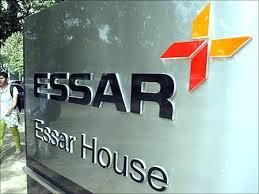 | « Back to article | Print this article |

The taboo in selling assets has departed from the Indian promoter’s psyche, which is resulting in a large number of billion-dollar deals.
In October, when the Essar group sold its 98 per cent stake in Essar Oil to a Rosneft-led consortium for about $13 billion, it changed the face of mergers and acquisitions in the country.
The Ruias celebrated the deal with full-page advertisements in financial newspapers. Harsh Goenka, chairman of the RPG group summed it up thus: “Earlier, selling a business was considered blasphemy. Now, you sell a business and issue full page ads. How things have changed!”
With this change in the promoter’s attitude, it is no surprise that M&As in India set a new record with deals worth $80.7 billion in 2016, according to Bloomberg. This is higher than the previous record of $71.6 billion in 2007. That was the year India’s largest outbound M&A was celebrated when Tata Steel bought Anglo-Dutch Corus for $8.1 billion. Now the record for the largest inbound deal is with Essar Oil.
“Deal street has been on fire this year,” says Manisha Girotra, chief executive officer of US-based investment banking firm Moelis & Company in India. “What is interesting is that FDI has overtaken FII in terms of new capital fuelling growth in the country,” she adds.
Essar said in its advertisement that Rs 85,000-crore FDI had come in through its deal. What is more interesting is the year also saw the highest number of billion-dollar deals with 16 such transactions.
“Deleveraging was the biggest theme for M&As in the year,” says Ajay Saraf, executive director at ICICI Securities. In addition to Essar’s deal, the Jaypee group selling its cement assets to UltraTech and Reliance Communications selling a 51 per cent stake in its tower assets to Canadian fund Brookfield play into this theme.
“The taboo in selling assets has departed from the Indian promoter’s psyche, which is resulting in a large number of billion-dollar deals,” says Saraf.
This has led to increased interest from global financial investors, who are now finding far greater opportunity for buyout deals in the country. Brookfield’s acquisition of Reliance Communications’ tower assets indicates this as well. Moreover, when Lafarge India was selling its assets in India, a large number of alternate asset funds, including KKR, showed interest.
Then there was also the consolidation theme in sectors such as insurance and DTH, where larger players bought out smaller rivals. HDFC Life merged with Max Life to create India’s largest listed private insurance company in a deal that is valued $3.1 billion.
“There are largely five themes that have been playing out in M&As this year and the same are expected to continue next year,” says S Ramesh, managing director and chief executive officer, Kotak Investment Bank. He was an advisor to Tata Chemicals in the sale of its urea business to Yara International in a deal that was valued $400 million.
Apart from the three themes already mentioned, Ramesh cites inbound acquisitions in the pharmaceuticals and healthcare sectors along with outbound deals in information technology.
The year saw Chinese firm Shanghai Fosun buying 86 per cent in Hyderabad-based Gland Pharma at a $1.46-billion valuation.